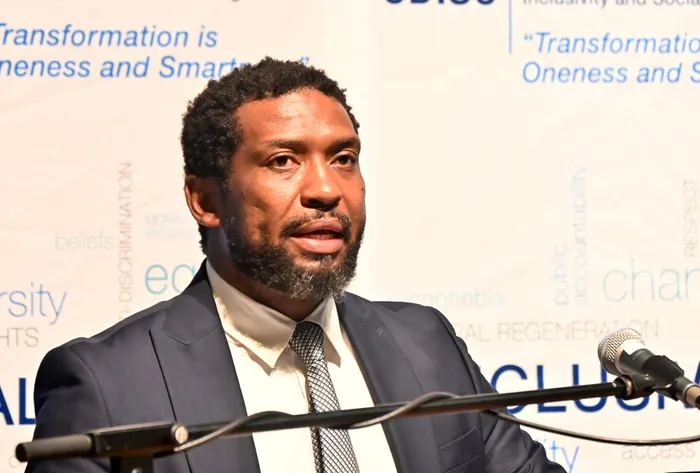NSFAS reforms welcomed as minister urged to prioritise funding before new academic year

Newly appointed Higher Education Minister Buti Manamela has announced sweeping reforms to stabilise the embattled NSFAS, earning praise from higher education leaders who urge him to maintain urgency in fixing funding, governance, and infrastructure issues before the 2026 academic year begins.
Image: Ayanda Ndamane / Independent Newspapers
The long-troubled National Student Financial Aid Scheme (NSFAS) has been described as a powder keg in South Africa’s higher education system, plagued by governance failures, delayed payments, and a funding model that has left universities and the so-called “missing middle” stranded.
For years, the scheme has struggled with disbursement delays, student accommodation crises, and operational inefficiencies that have sparked widespread frustration and campus unrest. Now, the newly appointed Minister of Higher Education, Science and Innovation, Buti Manamela, has moved quickly to announce sweeping reforms aimed at stabilising the situation.
This week, shortly after assuming office, Minister Manamela outlined his plans to bring dramatic changes to the Department of Higher Education and Training (DHET), NSFAS, and the Sector Education and Training Authorities (SETAs). His swift action has been met with praise from key voices in the higher education sector.
Dr Linda Meyer, Managing Director at The IIE’s Rosebank College and Waterfall School of Business, President at Rosebank International University College Ghana, and a prominent higher education policy expert, welcomed the announcement.
“Minister Manamela has hit the ground running, bringing a sense of urgency and clarity to a system in dire need of reform,” Dr Meyer said. “His commitment to stabilising NSFAS and addressing its governance and operational failures is a vital and extremely welcome first step towards steadying the volatile higher education and NSFAS landscape.”
However, Dr Meyer emphasised that the momentum must not be lost, particularly with the 2026 academic year on the horizon.
“We urge the minister to ensure that students starting the next academic year are not subjected to the same challenges faced by their predecessors,” she said. “We understand the Herculean task ahead, but we hope the disbursement issues can be resolved in months, not years, so that every qualifying student benefits.”
While the specifics of the minister’s plan are yet to be revealed, Dr Meyer highlighted several key priorities that need urgent attention:
Reforming the funding model:
NSFAS needs a balanced approach that supports poor students, addresses the missing middle, and ensures university sustainability. Tiered loan and grant options, with repayment structures linked to post-graduation employment, could expand access while maintaining financial viability.
Upgrading ICT infrastructure:A modern, integrated system connecting NSFAS, universities, TVET colleges, and SARS is essential. This would streamline eligibility verification, reduce errors, speed up payments, and prevent fraud, ensuring students receive timely support.
Streamlining governance:
Appointing a credible and competent NSFAS CEO, moving operations to Pretoria under DHET’s direct oversight, or decentralising disbursements to universities could reduce costs and improve accountability. Establishing a robust, independent board with higher education management expertise is also essential to restore public trust.
Addressing the missing middle:
Expanding eligibility to include tailored loan schemes for middle-income families would promote fairness and ensure broader taxpayer benefit, aligning with South Africa’s goal of inclusive education access.
Dr Meyer said that the minister’s early vision has the potential to break away from the cycle of bureaucracy and stagnation that has hindered progress in the past.
“It is our sincere hope that this vision is translated into action quickly. South Africa deserves an NSFAS that is transparent, accountable, and future-focused,” she said. “With sustained leadership and stakeholder support, Minister Manamela can ensure that higher education remains a pathway to empowerment for all.”
If these reforms are implemented effectively, they could mark the turning point for a system that has been on the brink of collapse. For thousands of students across the country, the stakes could not be higher.